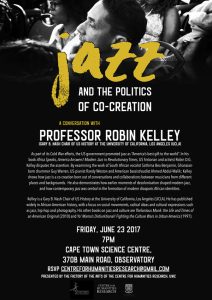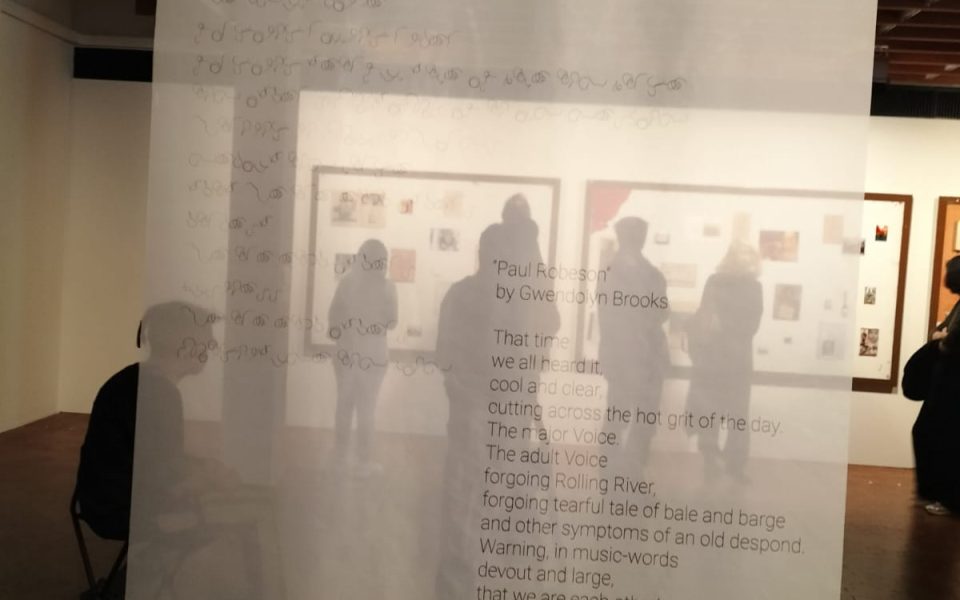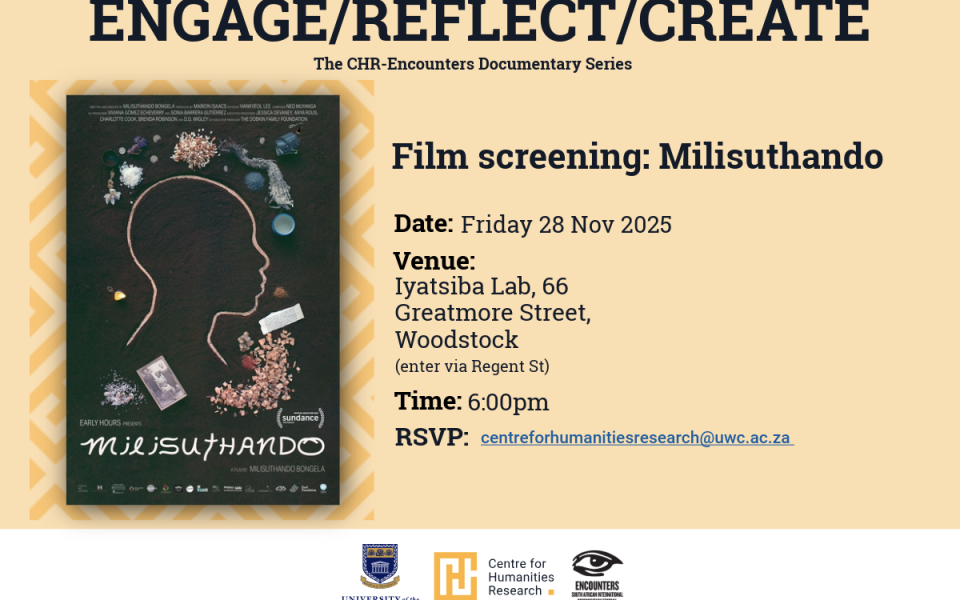Jazz and the Politics of Co-Creation

On Friday 23 June, Kelley gave a presentation titled Jazz and the Politics of Co-creation. Hosted by the University of the Western Cape’s Centre for Humanities Research (CHR) and Tshisimani Centre for Activist Education, the presentation was part of The Factory of the Arts’ Conversations, a new series of public dialogues on jazz.
As part of its Cold War efforts, the US government promoted jazz as “America’s best gift to the world”. In his book Africa Speaks, America Answers! Modern Jazz in Revolutionary Times, US historian and activist Robin D.G. Kelley disputes the assertion. By examining the work of South African vocalist Sathima Bea Benjamin, Ghanaian-born drummer Guy Warren, US-pianist Randy Weston and American bassist/oudist Ahmed Abdul-Malik; Kelley shows how jazz is a co-creation born out of conversations and collaborations between musicians from different places and backgrounds. He also demonstrates how earlier moments of decolonisation shaped modern jazz, and how contemporary jazz was central in the formation of modern diasporic African identities.
Kelley is a Gary B. Nash Chair of US History at the University of California, Los Angeles (UCLA). He has published widely in African-American history, with a focus on social movements, radical ideas and cultural expressions such as jazz, hip-hop and photography. His other books on jazz and culture are Thelonious Monk: the Life and Times of an American Original (2010) and Yo’ Mama’s Disfunktional! Fighting the Culture Wars in Urban America (1997).





